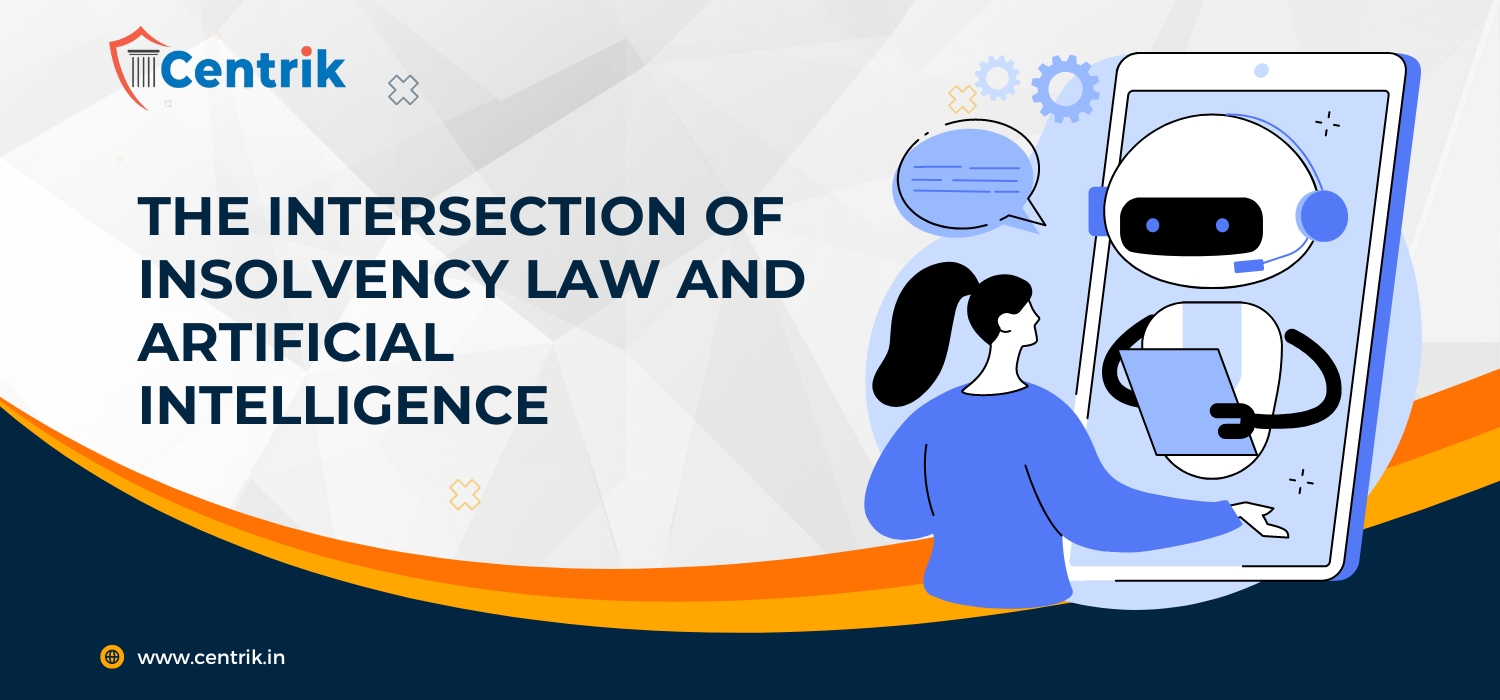In the realm of legal frameworks, insolvency law stands as a important mechanism for resolving corporate debtor. As economies evolve, so do the challenges and complexities surrounding insolvency proceedings. Artificial intelligence (hereinafter referred to as ‘AI’), reshaping industries across the board, including the legal domain. The combination of insolvency law with AI presents a landscape development with potential, promising efficiency, accuracy, and adaptability.

At its core, insolvency law navigates the delicate balance between creditor protection and debtor rehabilitation. Traditional methods rely heavily on human expertise to interpret vast amounts of financial data, assess risk, and formulate strategies. However, this approach is not without its limitations—subjectivity, inconsistency, and time constraints often plague the process. Here, AI emerges as a game-changer.
Moreover, AI augments risk assessment and prediction, providing insights that enhance the efficacy of insolvency proceedings. By analyzing historical data and market trends, AI systems can forecast potential outcomes, empowering stakeholders to devise proactive strategies and mitigate risks effectively. This predictive capability not only streamlines decision-making processes but also enhances the overall transparency and accountability of insolvency proceedings.
AI is incredibly helpful for litigants who have physically or electronically sat in court, experienced the weight of their clients’ needs, and diligently prepared for a hearing before a real judge, but it is in no way able to satisfy the court’s requirements on its own. A court may, for instance, interrupt the senior attorney with the most expertise during their closing arguments, ask any question, clarify anything, and then expect a convincing answer. There isn’t time to create your own response right now, nor is there time to check ChatGPT.
Furthermore, AI facilitates the automation of routine tasks, freeing up valuable human resources to focus on strategic initiatives and complex legal matters. Document review, case analysis, and compliance monitoring are just a few areas where AI-driven automation can significantly improve efficiency and reduce operational costs.
However, as with any technological advancement, the integration of AI into insolvency law is not without challenges. Concerns regarding data privacy, algorithmic bias, and regulatory compliance must be addressed to ensure the ethical and responsible use of AI in insolvency proceedings.
In conclusion, the convergence of insolvency law and artificial intelligence represents a transformative paradigm shift in the legal landscape. By harnessing AI’s analytical prowess and automation capabilities, stakeholders can navigate insolvency proceedings with unprecedented efficiency, accuracy, and transparency, ultimately fostering a more robust and resilient financial ecosystem.




 join For Updates
join For Updates